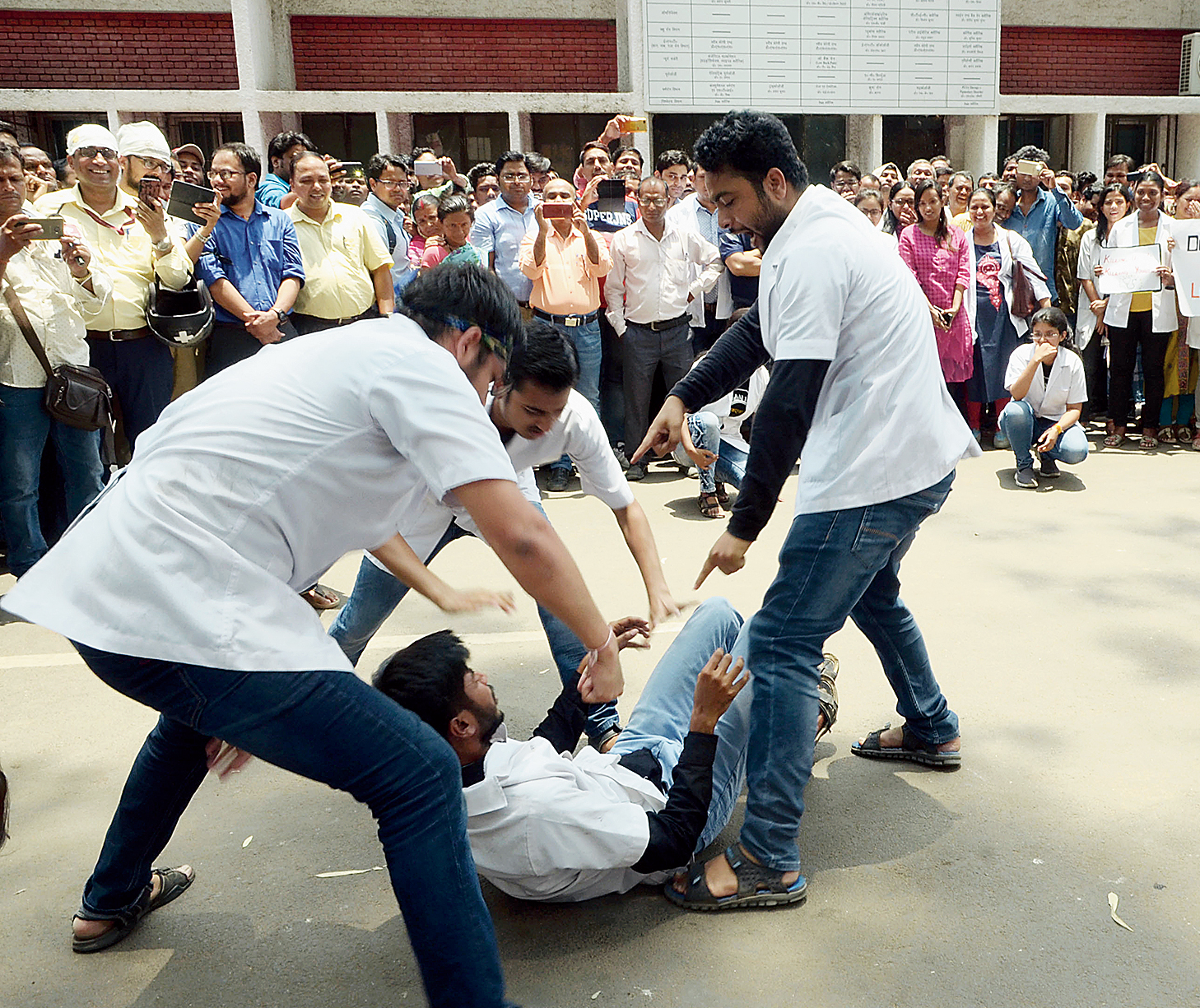Junior doctors of Rajendra Institute of Medical Sciences (RIMS) on Friday staged a street play on their campus to highlight the plight of doctors at a time the attack on a doctor of a Calcutta hospital earlier this week has snowballed into a national healthcare crisis.
The doctors looked every bit like members of a theatre group highlighting burning socio-political issues but for their signature half-sleeve aprons.
The medical practitioners put across the issues faced by them rather well considering the fact that they had no formal training in acting.
“The clash between your expectations and our limitations is what we wanted to convey through this hurriedly prepared street play,” said Dr Ajit Kumar, president of RIMS Junior Doctors’ Association, who guided the team.
He said a group of about 20 junior doctors and medical students were involved in the exercise.
“It was a joint effort. The group rehearsed a few times on a flexible script before staging the play,” he said, adding that the cultural society at RIMS also chipped in with inputs.
The play showed how a young person spends a lot of money, energy and time to qualify as a doctor, but is more often than not pushed into a corner.
It also showed how people admit patients in a critical condition after consulting quacks and ojhas (sorcerers).
In such cases, doctors can’t revive patients despite their best efforts.
The play recreated the recent happenings at NRS Medical College & Hospital in Calcutta that led to the current impasse across the country.
A woman acting as a representative of junior doctors at the Calcutta hospital drew huge applause from the audience when she made a speech peppered with Bengali words like “amra jokhon CM ke meet korlam, uni bollen chaar ghontar modhye kaje jog dite” to recreate the episode when Bengal chief minister Mamata Banerjee gave a four-hour ultimatum to striking doctors.
The play ended with the cast loudly humming “insaan hun main, bhagwan nahin hun (I'm just a human being, not a god)” in a chorus.
“If the applause and cheers were any indication, the audience (comprising relatives of patients at RIMS) supported our cause,” Kumar said.











